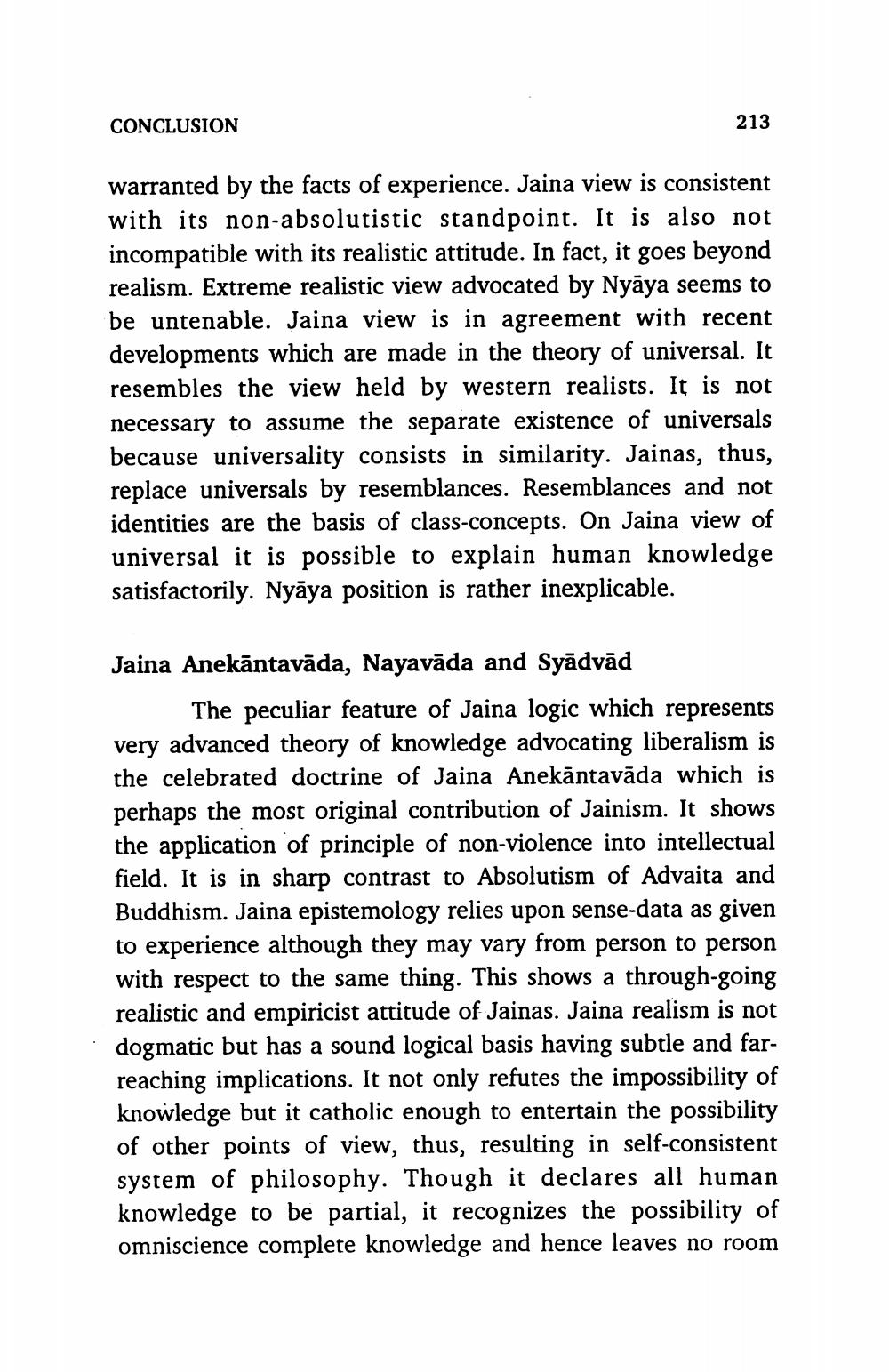________________
CONCLUSION
213
warranted by the facts of experience. Jaina view is consistent with its non-absolutistic standpoint. It is also not incompatible with its realistic attitude. In fact, it goes beyond realism. Extreme realistic view advocated by Nyāya seems to be untenable. Jaina view is in agreement with recent developments which are made in the theory of universal. It resembles the view held by western realists. It is not necessary to assume the separate existence of universals because universality consists in similarity. Jainas, thus, replace universals by resemblances. Resemblances and not identities are the basis of class-concepts. On Jaina view of universal it is possible to explain human knowledge satisfactorily. Nyāya position is rather inexplicable.
Jaina Anekāntavāda, Nayavāda and Syādvād
The peculiar feature of Jaina logic which represents very advanced theory of knowledge advocating liberalism is the celebrated doctrine of Jaina Anekāntavāda which is perhaps the most original contribution of Jainism. It shows the application of principle of non-violence into intellectual field. It is in sharp contrast to Absolutism of Advaita and Buddhism. Jaina epistemology relies upon sense-data as given to experience although they may vary from person to person with respect to the same thing. This shows a through-going realistic and empiricist attitude of Jainas. Jaina realism is not dogmatic but has a sound logical basis having subtle and farreaching implications. It not only refutes the impossibility of knowledge but it catholic enough to entertain the possibility of other points of view, thus, resulting in self-consistent system of philosophy. Though it declares all human knowledge to be partial, it recognizes the possibility of omniscience complete knowledge and hence leaves no room




